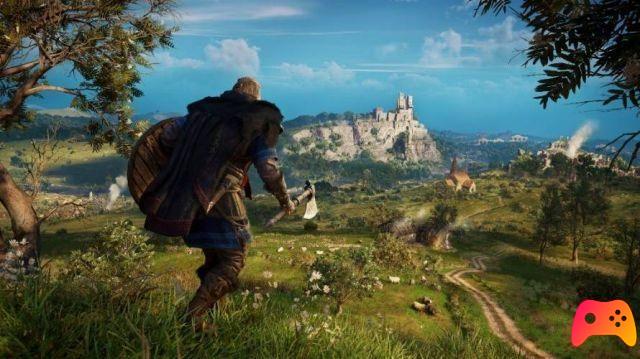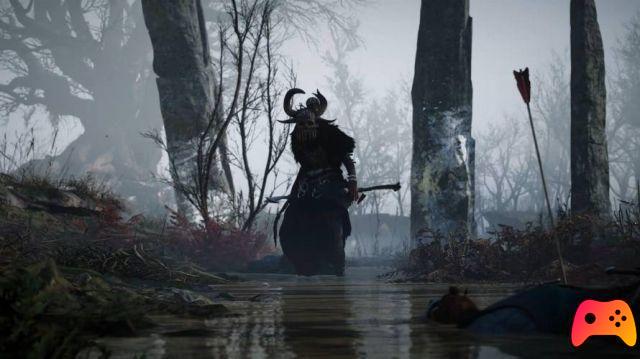
Ubisoft's support for the latest title in the Assassin's Creed series inaugurated with Altair is far from over. The Eivor saga narrated in Assassin's Creed Valhalla is enriched with a new narrative arc, the Wrath of the Druids, which brings the leader of the Raven clan to the Irish lands. After updating the title with various new features such as the Yule festival and river raids, Ubisoft has released the first real expansion for Valhalla, which represents only the first half of this cycle. Here's what awaits you in Ubisoft's Viking Ireland.

Go Celtics, go!
The new narrative arc that sees Eivor as the protagonist begins with an unexpected visit: Azar, a merchant of oriental origins, brings a missive to the Corvo clan in which the king of Dublin expressly asks for Eivor's help, calling him a cousin. The Viking, both out of curiosity and to establish new s, decides to leave to be welcomed by Barid, a cousin with whom he had lost contact, who asks him for help in trying to get into the thanks from Flann Sinna, future supreme king of Ireland. The main quest probably starts a bit subdued and then picks up the pace towards the end, with an outcome that is not at all obvious, given the events that will overwhelm Eivor and his allies. Some of the supporting actors are really well done: among these the character who most inspired us is Ciara, a poetess with a nymph's voice, with whom you can also start a romance. However, if you expect the Wrath of the Druids to have immediate repercussions also in the timeline of the present, that is, after the conclusion of the main title, you will be left dry.
This made us turn up our noses a bit, as the mold inaugurated with the Assassin's Creed Odyssey expansions had added that extra pinch of spice. However, this does not mean that we have less fun running around Ireland than the guys from Ubisoft, whose similarities with England are many but this does not mean that it turns out to be less original. In fact, there will be typical Irish views, really beautiful to admire and explore. Like England, the four kingdoms of Ireland will also be full of secondary activities to complete, prompting the player to walk it from top to bottom.

The soul of commerce
Among the various secondary activities of the Wrath of the Druids, the one started by Azar stands out. One of Eivor's tasks will be to help Dublin conquer one prominent position in the commercial landscape. To achieve this, Eivor will have to recapture and refurbish the commercial outposts scattered throughout Ireland, which have now fallen into disuse or become a base for brigands. Everything will result in assaults or infiltrations of "mini-fortresses" and then looking for clues on the deed of ownership of the outpost which, once found, will have to be strengthened with the appropriate structures in such a way as to produce resources that will keep the trade alive Irish.
In fact, the outposts will generate resources over time and Eivor will be able to decide who to trade with. By carrying out these negotiations, which we will manage through Azar, Dublin will increase its fame and at the same time Eivor will increase the variety of its arsenal, as well as obtain other useful resources. The main novelty from the point of view of the gameplay is represented by the trade, as the rest of the secondary activities are practically the same as the main title, masked by something else: in the long run it becomes repetitive and therefore those who are not passionate about saga could get bored. Small mention of merit goes to the musical tracks introduced thanks to the character of Ciara, which several times made us want to rest Eivor's limbs to listen to the music of the poet.

Wrath of the Druids is a well thought-out expansion that could have dared something more. Ubisoft decides to be on the safe side, focusing on the strong base of the main title by adding only a few small news, in addition to the new narrative arc that still deserves to be played. Fans of the saga who enjoyed Valhalla will certainly have fun in the Irish lands too but they won't do well not to expect huge exploits.






